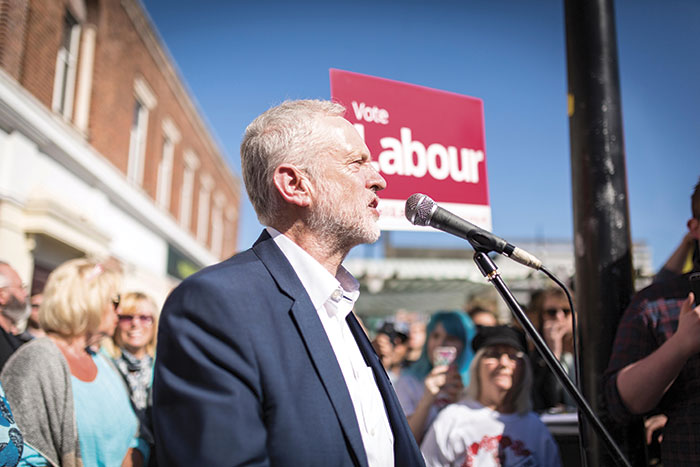
Britain’s considerable political volatility continues.
In only five years, the country has witnessed the rise of the UK Independence Party and Scottish nationalists in Scotland; the ascendancy of Jeremy Corbyn; the 2016 referendum and the public vote for Brexit; the surprising outcome of the general election in 2017; the failure of prime minister Theresa May to deliver Brexit, following her resignation and a Tory leadership contest; and then the striking result of the 2019 European Parliament election, which saw the challenger Brexit Party, Liberal Democrats and the Greens surge at the expense of the two main parties. Britain used to be known around the globe for its quintessential and typically predictable two-party system. But no more.
This unprecedented volatility has sparked considerable debate within the business and wealth management communities. A fragmented political system and the unpopularity of the incumbent Conservatives could have a profound impact upon investors and high net worth clients and lead to the election of the most economically radical and left-wing Labour government Britain has ever seen.
Labour would only require a 2.5-point uniform swing to emerge as the largest party, governing as part of a coalition, perhaps with the Scottish National Party or the Liberal Democrats, or a 4-point uniform swing to emerge as the largest party with a majority in its own right.
Already, in 2017, Jeremy Corbyn’s Labour Party offered a radical departure from the status quo with the renationalisation or nationalisation of rail, water, energy and Royal Mail, the introduction of a 50% rate of tax on high earners (£123,000 and above) and an income tax rate of 45% on £80,000 and above. Such promises were couched in diffuse populist messages to “stop the system being rigged against the many for the few”. These policies helped to attract more than 40% of the popular vote in the 2017 general election.
Labour’s proposals have thus triggered concerns in four areas: changes to existing tax and pension arrangements; the introduction of brand new taxes; the spectre of capital controls; and the significant prospect of Conservatives drifting leftwards to fend off the electoral threat from ‘Corbynomics’.
While it is often argued that it is unlikely Jeremy Corbyn will ever become prime minister, it is important to remember that 2017 general election result. Labour would only require a 2.5-point uniform swing to emerge as the largest party, governing as part of a coalition, perhaps with the Scottish National Party or the Liberal Democrats, or a 4-point uniform swing to emerge as the largest party with a majority in its own right.
At the time of writing, Labour has led in all but four of the last 30 opinion polls, when it has tied. The Conservative Party has not had a lead outside the margin of error since mid-March. In addition, while some argue Corbyn is too unpopular to be elected this ignores the point that, at present, everybody is unpopular.
Corbynomics are actually very popular. Remember, most voters feel pessimistic about Britain’s economy – 60% feel it is ‘getting worse’, while only 16% feel it is ‘improving’. Voters believe businesses are behaving ‘worse’ than they did five years ago; a majority believe British society is becoming ‘less fair’; most feel their children’s standard of living will be worse than their own. NatCen Social Research suggested the Tories should be concerned that “the public is tiring of an austerity programme that has been a centrepiece of their time in office”.
For all of these reasons, a Labour government is more plausible than many think. Certainly, whoever is in Number 10 will face a pessimistic public that wants greater spending on public services, tax rises, stronger regulation of business and an interventionist government that offers more in the way of protection from the economic winds of globalisation.




















